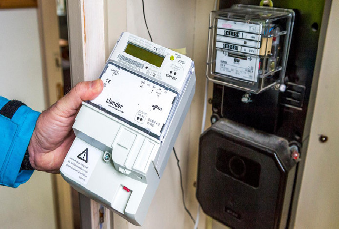The energy savings by households with a smart meter lags behind expectations. While it was anticipated savings of 3.5 percent, stabbing remains at less than 1 percent, according to a study that the Netherlands Environmental Assessment Agency (PBL) published today.
 With the introduction of smart meters the central government wants to serve a number of social goals: to contribute to reducing greenhouse gas emissions, keep energy affordable and ensure the reliability of energy supply, PBL writes.
With the introduction of smart meters the central government wants to serve a number of social goals: to contribute to reducing greenhouse gas emissions, keep energy affordable and ensure the reliability of energy supply, PBL writes.
In 2015 it was decided that all homes have a smart energy meter. Meanwhile, when more than a quarter of the 7 million Dutch households installed this smart meters.
Proceeds under pressure
Due to the disappointing effect is known to be the intended financial income under pressure. The total replacement surgery cost the government 3.3 billion euros. By 3.5 percent energy savings to be recouped nearly 1.5 billion euros, but that is not met.
PBL calls for an adjustment of the policy and points to digital power managers as the best choice to maximize energy savings. The Vereniging Eigen Huis (VEH) asked Minister Henk Kamp (Economic Affairs) solutions that better suit consumer behavior.
Hard to fathom
A survey among members of the Vereniging Eigen Huis (VEH) confirms the picture. Of 4425 respondents finds only 30 percent of that consumption costs encourages them to save energy. ,, The two monthly costs statements are difficult to understand and do not lead to a desired change in consumer behavior, '' responds Rob Mulder VEH.
,, In addition, often the statements do not meet the rules. It is no wonder that it is not a stimulant for most consumers to save energy. If we go through, we realize the expected energy savings by no. This is not only bad for the environment but also the wallets of consumers, '' says Mulder.
By Editors AD: Photo: Reuters

Reactie plaatsen
Reacties